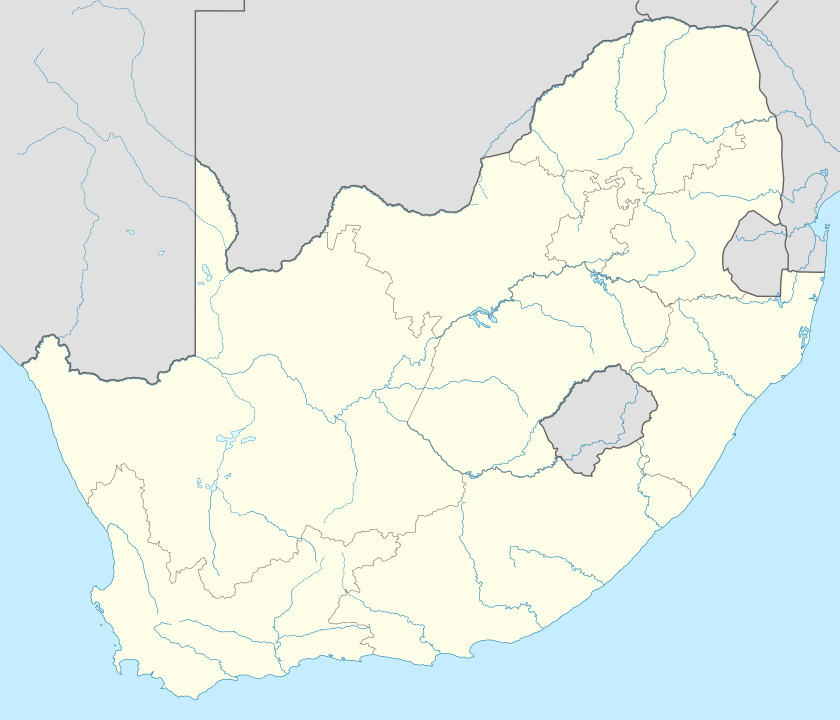Business Phone System for SA Businesses
Cloud PBX Info: Features, Pricing & More
Cloud Call Centre Solutions
Additional Cloud PBX Products


Keep your existing phone number OR
Choose a new local or non-geographic number
Reduced call rates, installation & maintenance
Crystal clear voice quality
Month-to-month contracts (no long-term contracts)
Future-proof modern replacement for vulnerable copper landlines
Increased call capacity at no additional costs
Select a VoIP package that suits your needs

Per second billing
Precise billing for the time you spend talking.

No long term contracts
Flexible and affordable month-to-month subscriptions that don’t lock you in for the long term.

Loadshedding redundancies
Maintain uptime during a power outage in your area.
We understand the needs of businesses operating in South Africa that face unique telecommunications and data supply challenges
In 1985, United Telecoms was founded to provide custom and cost-effective business phone systems for businesses across the country.
Today, we are a leading solutions supplier and considered among the top VoIP service providers in the country, having provided over 3000 businesses with reliable IP PBX and cloud PBX solutions.
A specialist from our team can recommend the perfect business VoIP services to suit your communication workflow and unlock added value for your business.
Contact our friendly team of experts to get assistance implementing the best VoIP solution for your business.
contact us More testimonials



Voice over Internet Protocol (VoIP Technology) is a revolutionary technology that provides voice communication and multimedia sessions to be facilitated using the Internet, rather than analogue phone lines.
Your voice is converted into digital data which enables you to make a call directly from a computer, smartphone, softphone extension or VoIP-compatible phone over a fibre or broadband internet connection.
Switching to a VoIP service is easy! You can keep your landline number, cut costs and unlock a wide range of benefits for your business.
To get started, submit your enquiry today.
VoIP systems are future-proof solutions that help businesses enhance their communication workflow and offer numerous other benefits.
The advantages of VoIP include reduced call rates, minimal hardware requirements, amazing call management features, seamless unified communication functionality and much more.
One of our specialists can help you determine the exact features you require to fit your needs. Learn more about the benefits of VoIP, and contact us to submit your enquiry today.
VoIP’s numerous benefits make it the go-to choice for businesses looking to implement a future-facing phone system from scratch or upgrade traditional telephony infrastructure.
Since 2018, subscriptions for fixed analogue lines have decreased significantly, and in turn subscriptions for VoIP services have seen a steady increase (according to The State of the ICT Sector Report in South Africa from March 2023).
More South African business owners are switching to VoIP to take advantage of its features and enhance interactions with their teams and customers.
Contact us to submit your VoIP-related enquiry, and get specialist support setting up a VoIP phone system today.
Enquire for business VoIPVoIP is ideal for all kinds of businesses, from entrepreneurs and startups to evolving enterprises and established multi-site corporates.
Whether you are upgrading your business phone system, or starting from scratch, a VoIP powered phone system will help you unify and streamline internal and external communications.
To get started, contact us to get advice from a telecommunications specialist.

VoIP caters to both very small businesses and growing startups, providing a cost-effective, scalable, and efficient communication solution that can be tailored to fit unique operational needs and growth aspirations.

VoIP serves medium-sized businesses by offering adaptable telecommunication infrastructure. VoIP seamlessly integrates with existing systems, and provides future-proof capabilities for sustainable growth.

For expansive multisite enterprises, VoIP guarantees consistent and unified communication across locations. VoIP’s standard and advanced capabilities make it a versatile solution for large scale operations.
Ready to switch to VoIP? If you would like to keep your landline number, you need to start the number porting process.
Our landline to VoIP number porting guide explores each step to help you navigate the process. A specialist from our team can also work with your provider to ensure you keep your number and transition to VoIP without interruptions or delays.
Contact a friendly expert from our team to get started.
Enquire for landline number portingOn average, businesses or homeowners can save 40-60% on the monthly cost of their telephone bill.
VoIP is a cost effective solution for businesses of all sizes – however there are still a number of factors that affect the cost of VoIP in South Africa.
Explore these factors and contact a specialist that can provide your business with a tailored VoIP solution.
Enquire for VoIPThere are different types of VoIP-powered systems, each providing distinct functionality, features and benefits.
Depending on your needs, you may require a hybrid IP PBX solution that integrates VoIP with an existing PBX (such as HV Select or SIP trunks), or a cloud phone system that is a fully fledged virtual phone system.
Find out more about types of VoIP systems, and submit your enquiry to get help from a specialist today.
A virtual phone system hosted entirely on servers in off-site data centres. This technology offers flexibility and a range of features without requiring additional hardware including call routing, recording, analytics, integration with CRM systems & more.
Receive calls using a variety of desktop and mobile devices using the UVC softphone extension, or your preferred IP desk phones and peripherals.
Find out if cloud PBX is right for your business
IP PBX (Internet Protocol Private Branch Exchange) systems are a modern evolution of traditional PBX systems, designed to manage internal and external calls for a business using Internet Protocol technology.
These systems combine the benefits of traditional PBX—like call routing and voicemail—with modern VoIP features, allowing voice, video, and data information to be sent over a single unified network.
Learn more about IP PBX solutions, and contact us with your enquiry today.
Wireless phone systems combine wireless technology and VoIP minimise the clutter and costs associated with extensive cabling found in traditional phone setups, and streamline business communications.
Experience a range of voice communication features, seamless integrations, and other advantages without without the complication of cabling.
Wireless phones sync effortlessly to local WiFi access points, either directly or via DECT base stations, ensuring a bridge between your network connection and handsets.
Learn more about wireless phone systems, and contact us to find out more.

Active Internet connection
Ensure you have an active LTE or fibre internet connection in order to utilise VoIP.

VoIP phone or softphone extension
An IP-enabled handset (such as an IP desk phone or cordless phone), or utilise our softphone extension via smartphone.

United Voice package
Select a VoIP over fibre or VoIP over LTE plan suits your requirements.
Our team are ready to assist you with the above process – connect with us via Web Chat, WhatsApp, Email or Call Us
Our team are ready to assist you with the above process – connect with us via Web Chat, WhatsApp, Email or Call Us

Don’t let outdated communication methods hold you back!
Step into the future with a VoIP phone system and choose a VoIP provider offering solutions tailored to suit your exact business needs.
Experience unparalleled clarity, efficiency, and scalability. Switch to VoIP today to embrace the future of communication and elevate your operations. Contact us now to get started!
VoIP stands for “Voice over Internet Protocol.” It’s a revolutionary technology that transforms voice communications into data packets. These packets traverse the internet, bypassing traditional telephony infrastructure. The primary benefit is that it leverages internet connectivity, obviating the need for conventional phone lines, often leading to reduced costs and increased flexibility for users. VoIP is reshaping how individuals and businesses communicate globally.
VoIP works by capturing voice, converting it into data packets, and transmitting these packets over the internet. Upon reaching their destination, data packets are reassembled and converted back into sound.
Unlike traditional telephony that uses fixed lines to transmit voice, VoIP uses digital means, which is essentially the same technology behind sending emails or browsing the web. This digital approach offers versatility and unlocks a wide range of benefits – including allowing users to make calls from computers, smartphones, or dedicated VoIP phones.
VoIP provides an array of advantages. Cost-efficiency is key talking point as long-distance or international calls are typically cheaper than traditional phone systems. Flexibility is another highlight as VoIP isn’t restricted to a fixed line and any reliable internet connection can enable you to manage VoIP communications. Features such as voicemail-to-email, call forwarding, and video conferencing often come as standard, and advanced features as easy to enable without the need for additional hardware. VoIP systems are scalable, making them suitable for growing businesses. Lastly, the digital nature of VoIP means improved and consistent call quality.
Business VoIP is a specialised version of VoIP tailored to meet the communication demands of enterprises. It’s not just about making and receiving calls; it encompasses advanced features like multi-extension call routing, auto-attendants, conferencing, and integrations with business tools like CRMs. The idea is to improve operational efficiency, enhance customer interactions, and offer flexibility to employees. Business VoIP systems are scalable, adapting to a company’s growth trajectory.
How does a business VoIP system work?
Business VoIP functions similarly to standard VoIP but has enhanced features tailored for business needs. Calls are made using IP phones or softphones connected to the internet. These devices interface with a VoIP server that routes the calls. Advanced features can include call queues, analytics, call recording, and integration with other business software. This centralised approach ensures streamlined communication, reduced costs, and increased productivity.
Setting up VoIP for a small business starts with a reliable internet connection, crucial for call quality. Next, select a reputable VoIP provider offering packages suiting your business needs. You’d then procure necessary equipment – this might be IP phones or computers with softphone software. Configuration involves setting up user extensions, call routing, and voicemail. Some businesses might also need an on-site or cloud-based PBX (Private Branch Exchange) to manage multiple lines and features.
VoIP software refers to applications enabling voice and multimedia communications over the internet. They transform devices, be it computers or smartphones, into virtual phones. Examples include Skype, Zoom, or softphone apps from VoIP providers. These tools, besides allowing voice calls, often incorporate features like instant messaging, video conferencing, and file sharing. They’re cost-effective, reduce the need for dedicated hardware, and offer immense flexibility to users.
Making a VoIP call is simple. With a device equipped with VoIP software or an IP phone, dial the desired number. The digital signals are converted to data packets, sent across the internet, and then reconverted at the recipient’s end. If both parties are on the same VoIP service, the call remains digital throughout. If calling a traditional phone, a gateway converts the digital signal back to analogue for the recipient.
A fixed VoIP number is similar to a traditional landline in that it’s associated with a specific address or location. Unlike non-fixed VoIP numbers, which are more nomadic, fixed VoIP numbers are tied to a physical locale. This association means they can be used for emergency services, which require location data. Fixed numbers also generally possess better call quality and are deemed more trustworthy for business operations.
A VoIP line refers to a virtual phone line established over the internet using VoIP technology. Unlike traditional analog lines, a VoIP line is digital, providing clearer call quality and additional features. You can have multiple VoIP lines on a single internet connection, depending on bandwidth. This scalability makes it suitable for businesses of all sizes, from single entrepreneurs to vast enterprises.
VoIP and landlines differ primarily in their technology. Landlines use copper wires or fiber optics to transmit analog voice signals, while VoIP transforms voice into digital data packets sent over the internet. VoIP offers more features at usually lower costs and is not geographically constrained like landlines. However, landlines have a history of reliability, especially during power outages or situations where internet connectivity is compromised.
Connecting VoIP to a landline involves a device called a gateway or an Analog Telephone Adapter (ATA). When a VoIP user calls a landline, the digital data packets reach the gateway, which converts them back into analog signals that a traditional phone can understand. Similarly, when a landline user calls a VoIP number, the gateway transforms the analog signals into digital packets for the VoIP system.
How to use a landline phone with VoIP?
To use a landline phone with VoIP, you need an Analog Telephone Adapter (ATA). This device bridges the gap between digital VoIP services and analog phones. You plug the landline phone into the ATA and connect the ATA to your internet router. The ATA converts the analog voice signal from the phone into digital packets for VoIP transmission and vice versa for incoming calls.
SIP, or Session Initiation Protocol, is a protocol used in VoIP to initiate, maintain, modify, and terminate voice and video calls. Think of it as the ruleset or language for establishing and controlling communication sessions in VoIP systems. SIP manages the setup of calls, routing of media between participants, and termination of sessions. It’s foundational to many VoIP systems, enabling features like video conferencing, instant messaging, and more.
For effective VoIP communication, a stable and high-speed internet connection is paramount. The exact bandwidth required will depend on the number of concurrent calls and the chosen codec. For a single VoIP call, a minimum of 100 Kbps (both ways) is often recommended. Broadband connections like LTE/4G or fibre-optic are most commonly used. It’s also essential that the connection has low latency (delay in data transmission) and minimal jitter (variance in packet arrival times). Some businesses may also prioritise Quality of Service (QoS) settings on their routers to give VoIP traffic priority, ensuring optimum call quality.
Several factors impact VoIP call quality. Bandwidth availability is paramount: inadequate bandwidth can lead to dropped calls or poor sound quality. Latency, which refers to the delay in data packet transmission, can cause voice delays. Jitter, the variance in data packet arrival times, may lead to choppy voice. Finally, packet loss, where data packets don’t reach their destination, can degrade call clarity. Properly configured networks and quality of service (QoS) settings can mitigate these issues.
VoIP voice quality, when optimised, can surpass traditional landlines. Digital transmission offers clarity, and high-definition codecs can capture a broader range of voice frequencies. However, quality can be affected by factors like bandwidth, latency, and packet loss. Using a reliable VoIP provider, ensuring sufficient bandwidth, and optimising network settings can ensure consistently excellent voice quality.
VoIP service costs depend on various elements: service type, chosen features, call volume, and the provider itself. Many providers also offer tiered packages, allowing customisation based on individual or business needs, ensuring you only pay for what’s necessary. Contact a specialist from our team to get a custom quote today.
A complete VoIP system’s cost isn’t limited to monthly service fees. There’s the upfront cost of equipment like IP phones, potential installation or setup fees, and costs associated with any additional features or integrations. Small businesses might find setup costs as low as a few hundred dollars, while large enterprises could invest several thousand, especially if extensive on-site equipment is required.
A VoIP call’s traffic or data usage hinges on the codec (compression method) in use. Typically, VoIP calls utilise between 0.5 to 1.5 Mbps of bandwidth. For an hour-long call, this equates to about 225MB to 675MB of data. Factors like call duration, number of concurrent calls, and codec type all influence a VoIP call’s total data consumption. Adjusting codec settings can help manage bandwidth use.
VoIP offers cost savings primarily because it leverages the internet, an existing infrastructure, for voice communications.
Traditional landlines require dedicated copper lines, maintenance, and physical infrastructure, all of which come with costs.
VoIP eliminates the need for most of this physical hardware. Additionally, many charges associated with landlines, like long-distance fees, are significantly reduced or eliminated with VoIP. The digital nature of VoIP allows providers to offer a slew of features at no extra cost, further enhancing its value proposition.
Lastly, VoIP’s scalability means businesses can adjust services according to their needs, avoiding unnecessary expenses.
Obtaining a VoIP phone number involves selecting a VoIP service provider. Once you’ve chosen, you can request a new number or port an existing one. Many providers offer a range of number options, from local to international or toll-free numbers. The process is generally straightforward: sign up, select your desired number type and region, and within a short duration, your VoIP number is active.
Yes, the majority of VoIP providers allow you to port your landline number to their service, letting you maintain your existing number while enjoying the benefits of VoIP. Our landline to VoIP number porting guide covers the steps required, and you can contact us to help you action and help you navigate the process from start to finish.
Switching to VoIP while retaining your number involves a process called “number porting.” Most VoIP providers offer this service. First, select your VoIP provider and sign up. Inform them of your desire to port your existing number. They’ll typically need some documentation, like recent phone bills, to facilitate the process. There might be a wait time, but once completed, your number will operate on your new VoIP system. Explore the steps required in our number porting guide, and contact us for specialist support from start to finish.
To get VoIP phone service, first, identify your needs (residential or business, features required). Next, research and choose a reliable VoIP service provider, select an appropriate plan and purchase any necessary equipment (like IP phones). Once configured, you can start making and receiving calls over the internet.
Absolutely, VoIP solutions are inherently flexible and can be tailored to fit the unique requirements of any organisation. Depending on your needs, a VoIP system can be set up with specific features like advanced call routing, CRM integration, video conferencing, and more. Furthermore, VoIP allows for seamless scalability, meaning as your organisation grows or changes, the system can adapt accordingly. By consulting with a reputable VoIP provider, they can assess your organisation’s communication needs and design a solution that aligns perfectly with your operational requirements.
Western Cape: Cape Town, Belville, Paarl, Stellenbosch, Somerset West, Vredendal, Hout Bay, Green Point, Bloubergstrand, Durbanville, Melkbosstrand.
Eastern Cape: Port Elizabeth, Knysna, East London, George.
Kwa-Zulu Natal: Durban, Pinetown, Ladysmith, Newcastle, Ballito, Port Shepstone, Pietermaritzburg, Umhlanga, Westville, Hillcrest, Amanzimtoti.
Gauteng: Johannesburg, Vereeniging/Vaal, Sandton, Midrand, Pretoria, Centurion, Randburg, Roodepoort, Germiston, Alberton, Edenvale, Menlo Park.
Free State: Bloemfontein, Welkom, Bethlehem.
Mpumalanga: Witbank, Nelspruit.
Northern Cape: De Aar, Kimberley, Repra (Upington Area).
North West: Klerksdorp, Mafikeng.
Limpopo: Phalaborwa, Polokwane/Pietersburg.
Outside South Africa: Botswana, Zimbabwe, Swaziland, Namibia, Mozambique.
“Once we approved the installations we were kept up to date daily with the levels of progress on our various sites and were very impressed with the final installation”
Spear Properties
Head Office
19 Trinity Close
Cambridge Commercial Park
Paulshof
Sandton
Tel: 086 001 8500
Email: info@unitedtelecoms.net
6 Edison Way
Century City
Cape Town
Tel: 086 001 8500
Email: info@unitedtelecoms.net
12 Sookhai Place
Derby Downs Office Park
Westville
Tel: 086 001 8500
Email: info@unitedtelecoms.net